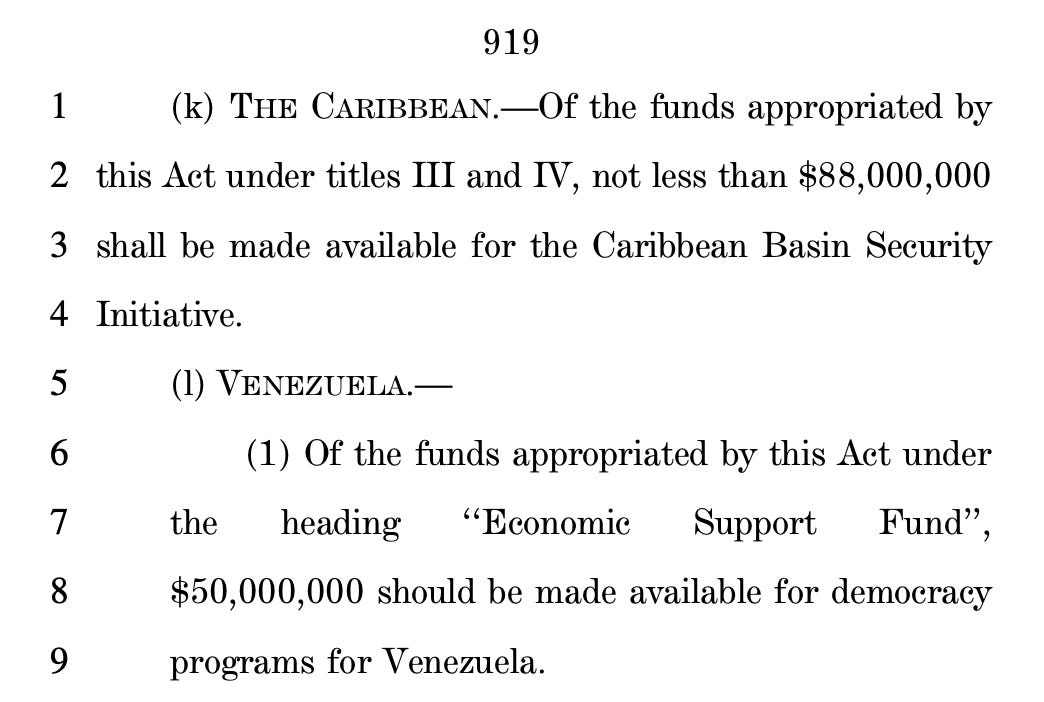U.S. Secretary of State Marco Rubio disembarks from Marine One as he prepares to board Air Force One at Haneda Airport on October 29, 2025 (Photo by Andrew Harnik/Getty Images).
Secretary of State Marco Rubio has expanded his push for regime change in Venezuela to include cartel-linked targets in Colombia and Mexico, according to sources in the Trump administration and on Capitol Hill with knowledge of the unfolding situation.
Rubio’s drive toward war has been predicated on claims that Venezuelan President Nicolas Maduro is involved in the drug trade, including trafficking fentanyl to the U.S. But American intelligence officials have briefed President Donald Trump to the contrary, alerting him to the fact that little to no fentanyl flows from Venezuela to the United States.
At an Oval Office meeting in early October, Trump administration officials and top generals discussed escalating the pressure on Venezuela to go beyond the semi-regular attacks on boats in the Caribbean where fourteen boats have been struck, killing at least 57 people. The discussed plans include striking on land inside Venezuela, a source at the high-level gathering told Drop Site. The same October 2 meeting included a previously reported directive from President Trump, who dialed his special envoy Richard Grenell into the call, telling him to cut off diplomatic communications with Maduro. That order was previously reported by the New York Times.
In the wake of the meeting, the intelligence community was tasked with coming up with a more tangible list of targets on land. The problem, however, was that because of Venezuela’s lack of significant involvement in the drug trade, the sites were largely in Colombia and Mexico, though did include small sites along the Colombia-Venezuela border, a zone relatively not under state control and where coca-growing flourishes.
Sen. Lindsey Graham, R-S.C., was briefed by Secretary of War Pete Hegseth on the new list of hard targets inside Venezuela, Colombia, and Mexico in early October, and lobbied fellow senators on expanding the war to include drug-related sites in Colombia, a source with knowledge of his conversations told Drop Site.
Graham alluded to his understanding of the battle plans in a recent interview on CBS News Face the Nation. “We’re not gonna sit on the sidelines and watch boats full of drugs come into our country,” Graham said. “We’re gonna blow them up and kill the people who want to poison America. And we’re now gonna expand our operations, I think, to the land. So please be clear about what I’m saying today. President Donald Trump sees Venezuela and Colombia as direct threats to our country, because they house narcoterrorist organizations.”
“President Trump’s made a decision that Maduro, the leader of Venezuela, is an indicted drug trafficker—that it’s time for him to go, that Venezuela and Colombia have been safe havens for narco-terrorists for too long,” Graham continued. “President Trump told me yesterday that he plans to brief members of Congress when he gets back from Asia about future potential military operations against Venezuela and Colombia. So there will be a congressional briefing about a potential expanding from the sea to the land.”
The interviewer noted that Indiana Republican Sen. Todd Young had pushed back against this notion. “What exactly is the end game? Because you’re talking about regime change in Venezuela,” CBS’s Margaret Brennan said. “The President says this is about drug boats.”
“Well, I think the end game is to make sure that Venezuela and Colombia cannot be used to poison America,” Graham said, again adding Colombia to the conversation.
Trump on Friday said he was not planning to strike inside Venezuela, contradicting reports he was preparing military targets in Venezuela as well as his claims from last week, when he said, “the land is going to be next.”
The Pentagon held a GOP-only briefing on Wednesday, ostensibly to discuss the airstrikes on boats. But those present were also told about the new list of targets inside Colombia, spooking several Republicans worried about mission creep, according to sources familiar. Sen. Mike Rounds from South Dakota, who serves on the intel committee, was one such Republican. It was “unfortunate” Democrats were not allowed in the briefing, he told reporters, adding that he advised the White House those briefings should be bi-partisan. Rounds did not publicly mention that the briefing included a drawn up list of targets inside Colombia.
Asked about the briefing and the inclusion of targets inside Colombia, Pentagon Chief Spokesman Sean Parnell chided lawmakers for leaking. “This morning, the Department held several committee briefings to ensure continued transparency with lawmakers,” Parnell told Drop Site. “The Department is deeply concerned that members of Congress are making public statements regarding information received in a classified briefing. The Department considers any unauthorized disclosure of classified information as [a] serious breach of national security.”
A spokesperson for Rounds said, “On Wednesday, Senator Rounds was invited to a classified briefing regarding military strikes in the Caribbean. This briefing was held in response to a request. A representative from the White House called Senator Rounds on Thursday morning to inform him that, in addition to the nine briefings that have now been provided to Congress on the activities in the Caribbean, the administration is working to provide another classified briefing for members of the Senate Armed Services Committee, as was requested by a bipartisan group of Senators. Senator Rounds found Wednesday’s briefing satisfactory and informative, and he looks forward to his colleagues receiving additional information.” The Pentagon referred questions about the Oval Office meeting to the White House, which did not respond to a request for comment.
Drop Site is reader-supported.
Around the same time that the Pentagon and intelligence community were drawing up lists of targets inside Colombia and Mexico and striking boats in the Caribbean, Adm. Alvin Holsey, the SOUTHCOM commander, threatened to quit, and was subsequently pushed out. (A Pentagon spokesperson forwarded Hegseth’s statement at the time.)
This week, Lieutenant General JP McGee, who was director for strategy, plans, and policy (J-5) on the Joint Staff, took early retirement. As J-5 director, McGee reported directly to the chairman of the Joint Chiefs of Staff and was responsible for implementing policy. “I know he was uncomfortable with this,” said a source close to McGee. CNN reported that McGee was pushed out of his position amid widespread disagreements with Hegseth, including over Caribbean policy. Parnell rejected the claim. “General McGee is retiring, and the War Department is grateful for his service. CNN’s claims regarding his retirement are 100% fake news,” he said.
On Thursday, Pentagon lawyers declined to show up for a closed-door House-side briefing to discuss the legal rationale for the airstrikes on boats. Rep. Seth Moulton, D-Mass., said that the Pentagon had “pulled the lawyers,” but a source told Drop Site that their absence was driven more by their own concerns about the legality of the policy rather than the Pentagon insisting they not attend.
President Trump, meanwhile, has become convinced that Venezuela is not a source of fentanyl, driving a shift in recent strikes by the U.S. military to the Pacific ocean targeting alleged traffickers transiting from Colombia to Mexico, undercutting previous justifications for targeting Maduro. Those boats, according to intelligence assessments, may have been carrying cocaine, if anything. Colombian President Gustavo Petro said at least one of the strikes was a Colombian family fishing boat.
Beyond active U.S. military strikes, the Trump administration continues to fund a vast array of Venezuelan opposition groups, government documents reviewed by Drop Site reveal. That includes some $50 million dollars set aside in the latest appropriations bill for the next fiscal year for “democracy programs for Venezuela.”
Text of the appropriations bill that outlines how funds are allocated for “democracy programs for Venezuela.
These funds mirror the mountains of money sent to Venezuelan opposition groups amounting to at least $213 million in the last five years, per an internal USAID assessment reviewed by Drop Site.
The documents also note that the U.S. spent $18 million specifically in 2024 on Venezuelan opposition groups, including on the global travel of recent Nobel Peace Prize winner Maria Corina Machado. Machado has aligned herself with the Trump administration in recent months in a bid to see herself installed as the new leader of Venezuela, vocally supporting U.S.-backed regime change efforts and bolstering claims that Maduro is involved with drug trafficking and the criminal gang Tren De Aragua.
Despite disbanding USAID in February 2025, the Trump administration redirected some $400 million dollars in recent months to combat ideologically opposed governments in Venezuela, Cuba, and Nicaragua, according to the assessment.
The State Department referred questions on USAID to the Office of Management and Budget, which did not respond to a request for comment.
Maduro, in recent months, has been irked at accusations that he invaded the U.S. with migrants, noting to interlocutors that it was the U.S. that funded advertisements throughout Latin America newspapers encouraging Venezuelan migration. One such contract reviewed by Drop Site revealed a USAID contract beginning in September 2023 and ending in July 2024 with Colombian newspaper El País whose purpose was “to disseminate a new narrative about the Venezuelan migrant population.” The grant required the paper to “document and make visible success stories of migrants accessing the formal market, using formats and media regularly consulted by business groups.”
From Drop Site News via this RSS feed




